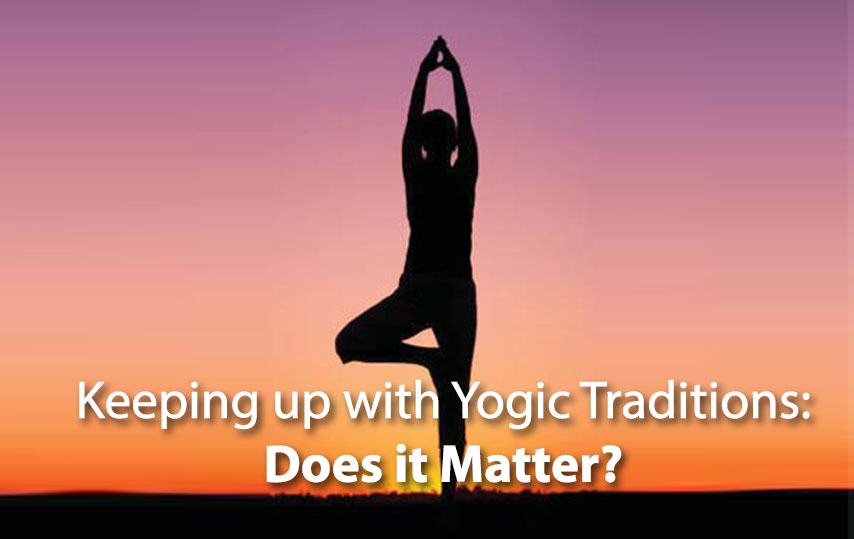The word ‘Yoga’ has been replaced in recent years (primarily in the West) to actually mean Asana. Asana is the Sanskrit word for “posture”, and it is also, in fact, only one eighth of Patanjali’s 8 Limbs of Yoga. Ask a passer-by on the street “what is Yoga?” and they might answer something along the physical lines. They may say it’s a sport; they may say it involves twisting yourself into various positions; or they may say “it’s a Hindu spiritual and ascetic discipline, a part of which, including breath control, simple meditation, and the adoption of specific bodily postures, is widely practiced for health and relaxation”. In which case, they have swallowed a dictionary and you should back away slowly.
The point being, that many of us are unaware Bouncy Castle that Yoga is in fact an ancient tradition dating back over 5000 years, and is much more than just a physical practice.
My own Yoga teacher training was very centred on “honouring the source” and respecting the ancient teachings of traditional Indian Yoga. We were taught Sanskrit mantras, we practised the long-established Ashtanga asana series, we even learnt kriyas such as neti pots (pouring salt water through one nostril and letting it flow out the other) to cleanse us, as traditional Indian yogis would do.
I feel honoured to have studied with teachers who are so knowledgeable and wise on the ancient teachings, and happy to have such knowledge within me also.
Not long after graduating from my course, high on prana and excessive hugs from fellow yogis, I found myself in a conversation with a friend, explaining (with ridiculous enthusiasm) my experience. When clarifying the importance of abiding by these conventions, I was met by the response “but does it matter?”
After spending an intense month of 5am morning meditations, constant aching joints, and general blood, sweat and tears, I felt that I had really gained an insight into the true nature of Yoga. So you can imagine my consternation when the reaction was “but does it matter?” But after having the conversation (which basically went “yes it does.” “but does it?” “yes. It does.” Cue snarls and stink eyes.), I eventually realised (after my inner-toddler had climbed down from her obstinate hobby-horse) that maybe there’s something in it?
Why does it matter? Yoga is a wonderful thing which clearly brings bene?ts-galore to anyone who practises. Many claim that power Yoga, hot Yoga, and other forms which would not traditionally be practiced in India, make them feel amazing, and consequently, get hooked on the stuff. This is not Yoga for Patanjali, or Swami Rama, but it is Yoga for those practising. It is their Yoga.
There are those who claim to have more con?dence after practising Yoga, have more clarity of mind, improved physical ?exibility, better digestion, less stress and anxiety, healthier bones and joints, the list is endless. I dare anyone to take a few Yoga classes and feel absolutely no bene?t, for some it may be a slow process, but it will happen. The bottom line is: Yoga is amazing. So again … why does it matter?
Of course, we should not overlook the fact that it is also a wonderful thing to honour the traditions of our ancient Gurus before us, and the philosophies of Yoga only add to this fabulous feeling we gain after our practice.
Associated with Yoga, you might have heard words such as: consciousness, awareness, at ease, peace, self-knowledge, clarity. These ideals are at the heart of the Yoga concept. The goal of Yoga and Patanjali’s eighth and ?nal limb is Samadhi: a state of intense concentration achieved through consistent meditation at which union with the divine is reached. More commonly known as enlightenment. The Himalayan sages in India strive for this, they spend their lives working through each limb until ?nally they gloriously arrive at Samadhi, and they live their lives in bliss.
“Good for them. But I’m not a Himalayan Sage” I hear you cry! True, you may not be. Neither am I. Neither are most of us in the West. But this consciousness and awareness of what Yoga is, the peace at which we ?nd ourselves in our daily practice, the clarity of mind we gain from Yoga every day, this is it.
But, for those who do not choose to join us in the spirituality-section … why does it matter? If someone can’t reach their toes in paschimottonasana, we are taught to say: “only go as far as you can today, you’re still reaping the same bene?ts”. The same concept can be applied with this. If you just want to take Yoga as a physical practice, and forget the spirituality for now, ?ne. Only go as far as you can today. Think about it.
I learned this the hard way. During a class, getting slightly over-excited and rambling on to my complete beginner students about Patanjali and Swami Rama, reeling off quotes as they stare back at me, blank faced and completely bemused. I failed to see how newcomers couldn’t think all these amazing stories about reaching this ultimate state of bliss was utterly mind-blowing and they should all do Yoga all day, everyday forever and ever amen.
Needless to say, that’s not what happened.
So I tried another tack. I told them about breathing, how it calms the mind. How the calmness can lead to clarity which can help focus on physical practice. I told them the endless physical bene?ts of asana, and the strength, lightness and uplift that they will feel from a consistent practice.
Then I told them that the feeling you feel after a Yoga class, when you awake from savasana feeling so calm, so tranquil yet feeling like you could take on the world, for me: that is my Samadhi. That’s what matters.
“Yoga” as a Sanskrit word, means “Unite”. It is the union of the individual self, and the universal self, or more simply put: a union of body and mind. Our body and mind do become one in Yoga.
Whether it’s your biceps and hamstrings saying “get me the hell out of this downdog!” and your mind replying “Trust me, I’m on your side”. Or if it’s really your body becoming aware of what your mind needs, and vice versa, as they work together to create a harmonious practice. This can sound like a load of yogic you-know-what, but just remember those times you’ve walked out of a Yoga class feeling amazing both physically and mentally, and thought “but why? I only did a few poses!” You’re not chanting to Guru Brahma, singing to Swami Rama, or praying to Patanjali, you are listening to yourself. Your full self. And whilst those ancient guys are pretty damn cool, notice yourself after doing a spot of Yoga … you’re pretty cool too.















 About the Author
About the Author


 Other
Other